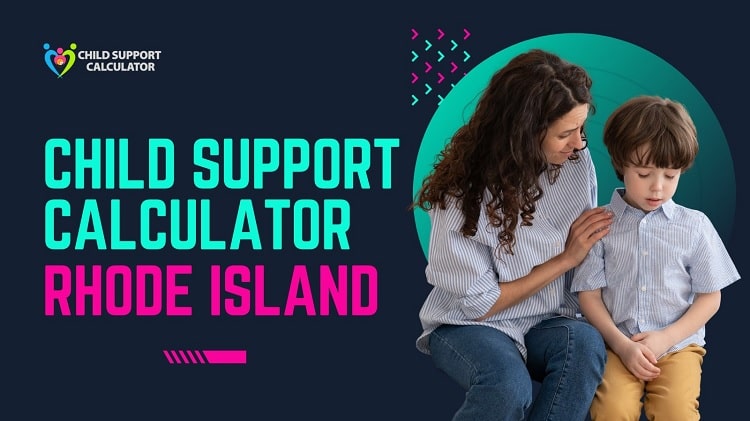Alimony In Georgia
You’re undoubtedly swamped with emotions if you’re going through a divorce. It’s no secret that ending a marriage is difficult, and the conversations you’ll have with your soon-to-be-ex won’t make things any easier.
Child custody, property division, and child support are among topics that divorcing spouses must discuss. You may also need to negotiate whether one spouse will financially assist the other with alimony during the divorce process and, in certain cases, after the judge has finalised your divorce, depending on your scenario.

Alimony (sometimes known as “spousal support”) is a court-ordered payment made by one spouse to the other to preserve the marital standard of life or make the lower-earning spouse financially secure during and after the divorce.
Alimony is not a new concept; it was historically customary in “traditional” marriages in which one spouse worked, and the other stayed at home to raise a family. Despite the fact that it is now typical for both spouses to work outside the home, the court might nevertheless award alimony for promoting economic justice in a divorce.This article will explain to you about alimony in Georgia.
Spousal Support In GA
Judges in Georgia have the authority to order either temporary or permanent alimony in Georgia. Temporary alimony is suitable when one spouse requires financial support while the divorce is pending in court.
Depending on local norms and the specifics of each case, the legal process for divorce can take anything from a few months to over a year. Couples must shift from a two-income home to a one-income household during this time.
When you’re used to your spouse working full-time to support you and your family, it’s natural to feel overwhelmed when it’s time to separate and pay debts that your spouse previously paid. The court may order one spouse to support the other until the divorce is finalised to guarantee financial justice for both spouses.
A temporary support award does not imply that alimony will be paid after the divorce. If permanent alimony is appropriate, the judge will issue a fresh order that will remain in effect after the divorce is finalised.
Even when the court grants permanent alimony, it is rare for an indefinite amount of time. The most prevalent alimony awards following a divorce are for spouses who require interim financial assistance to obtain job training or education that will enable them to find work and become self-sufficient. Due to elderly age or disability, Georgia courts reserve really permanent (long-term) alimony for spouses who are unable to find work and support themselves.
Qualifying for Spousal Support
Alimony can be requested by either spouse. However, before a judge may award alimony, the judge must determine that one spouse requires assistance and the other can afford it. When determining a final support award, the court will examine the following elements if there is a need and the ability to pay:
- The standard of living of the couple
- The duration of the union
- Age, bodily, and emotional well-being of each spouse
- Financial resources of both spouses.
- The amount of time it takes for the supported spouse to obtain sufficient training or training in order to locate suitable work.
- Each spouse’s contributions to the marriage, including the other spouse’s childcare, education, And career advancement.
- Each spouse’s financial situation, including distinct property, earning capacity, and debt.
- Any other reason that the court considers fair.
Georgia courts also look into whether one spouse’s marital wrongdoing contributed to the marriage’s demise. A judge may lower or even reject alimony to a spouse who meets all other criteria but abandoned the other spouse or committed adultery during the marriage (2018). The victim of marital misconduct may be awarded lifelong alimony by the court.
Unlike child support, there is no formal formula for calculating alimony in Georgia. Suppose there is no evidence of adultery or desertion, and there is a need and ability to pay. In that case, the judge will consider all of the factors in determining (1) whether alimony is appropriate and (2) the form, duration, and amount of the final award.
Paying Alimony in Georgia
The majority of alimony payments are periodic, meaning they are made monthly or weekly and continue until the court orders them to stop. The court may impose a one-time, lump-sum payment of support to the other spouse if the paying spouse has the financial means.
Because most couples (especially after a divorce) don’t have the financial means to send over a big sum of money to an ex-spouse, lump-sum payments are uncommon. On the other hand, a lump-sum payment can alleviate ongoing monthly or yearly payments if the circumstances allow it.
Modifying or Terminating Alimony
Unless the spouses have agreed in writing that neither will seek an alimony modification in the future, each might obtain a court review of support. Before the court considers a prospective modification, the asking spouse must show that either partner’s circumstances have changed. For example, if the supported spouse is in a marriage-like relationship with someone else or if the paying spouse loses his or her work.
If the supported spouse remarries, the alimony is automatically terminated. Temporary assistance will expire when the divorce is finalised by the judge.
GA Divorce Laws Alimony With Tax Effects
Periodic alimony payments may be tax-deductible by the payer and taxable by the recipient for divorce and settlement agreements executed before December 31, 2018. This condition can sometimes be exploited, with the couple structuring their alimony payments to minimise their tax liability.
It’s also worth noting that the IRS treats practically all lump-sum alimony payments as property distributions, regardless of whether the court or one of the spouses refers to the payments as alimony.
For none of the spouses, these payments will be deductible or taxed. When it comes to alimony, it’s a good idea to seek advice from a tax professional. Please keep in mind that the 2017 Tax Cuts and Jobs Act (TCJA) has major tax implications for alimony payments. Please discuss the ramifications with your accountant.
Adultery in Divorce (In Georgia)
Adultery is defined in Georgia as the act of one spouse having sexual intercourse with someone who is not their spouse while still married. To show your spouse’s infidelity, you’ll need their testimony and any other evidence, such as videos, photographs, phone records, or witness reports, as well as the findings of a private investigator. All of these are useful when attempting to establish adultery.
What effect does adultery have on alimony in Georgia? When adultery is the reason for a divorce in Georgia, the spouse who was unfaithful may be prevented from obtaining alimony. However, if a person has forgiven their spouse (forgiven the infidelity), then such a limitation to alimony may not exist at all.
Remarriage and Cohabitation
When one spouse’s financial situation is significantly better than the other’s, the court may order the wealthier spouse to support their partner under alimony in Georgia. When the supported spouse remarries, however, the paying spouse’s obligation expires.
The paying spouse in Georgia is not required to obtain a separate court order to stop the payments. He or she only needs to stop making payments on the day their spouse remarries. That being said, the paying spouse will be responsible for the entire alimony payment until their spouse remarries.
Faqs
Is there alimony in ga?
In Georgia, alimony is only permitted in certain circumstances and is not the broad remedy that it is in other states. In Georgia, alimony is either “rehabilitative” or “permanent.” Alimony is money paid by one spouse to the other for maintenance. Alimony may be paid for a short or extended duration.
What is alimony in ga?
In Georgia, alimony is either “rehabilitative” or “permanent.” Alimony is money paid by one spouse to the other for maintenance. Alimony may be paid for a short or extended duration. Alimony is usually only granted by the court after a long-term marriage ends.
How much is alimony in GA?
In Georgia, there are no defined formulas for calculating spousal support. The procedure of calculating financial assistance could be regarded as subjective and arbitrary. Any support (alimony) award is typically based on “the requirements of one spouse” and “the ability to pay by the other spouse.”
Can a wife get spousal support in ga?
The 1980 Divorce Code states that alimony may be granted to any party “only if the court deems that alimony is required.” Married people in Georgia are financially responsible for each other, with the husband having a responsibility to support his wife and the wife has a responsibility to support her husband.
How is alimony determined in ga?
If the wife does not work, the court will determine the amount of alimony based on her age, educational qualifications, and ability to work. If the husband is incapacitated and unable to work while the wife is working, the court will award the husband alimony.
How long does a man pay alimony in ga?
Spousal support is usually provided to a spouse who has been married for a long time (10+ years) and has little earning ability.
Does a man have to pay alimony in ga?
Alimony may be paid for a short or extended duration. Alimony is usually only granted by the court after a long-term marriage ends. If the court decides to award alimony to the other party, the other party must be able to pay it.
What happens if alimony isn’t paid?
Alimony arrears are owed debts that have not been paid. Arrears can be collected through a variety of methods, including mediation, small claims court, and wage garnishment. Failure to follow a court-ordered spousal support order may result in a contempt of court charge being filed against the spouse who has not paid owing alimony.
Can alimony be waived by a prenuptial agreement?
A prenuptial agreement is a contract made by two spouses prior to their marriage that covers financial matters relating to their marriage. Although limiting or waiving alimony rights is common in current prenuptial agreements, certain states and localities prohibit such waivers.
Is there any way to avoid alimony in Georgia?
Because alimony is not mandatory in Georgia, there may be a method to avoid it. Again, the court considers a variety of criteria while deciding whether alimony is appropriate. In Georgia, infidelity or desertion may also be grounds for alimony denial.
Can a working wife get alimony?
As previously stated, alimony is typically based on what each separating spouse “reasonably earns.” That means that if a person works at a job that pays less than what he or she is capable of earning, the courts may calculate alimony based on a larger sum.
Does a husband have to support his wife during separation?
Common-law couples are entitled to spousal support after three years of living together or if they had a child together, as long as the relationship remains stable. If one spouse needs spousal support, the other spouse is believed to be entitled to it right away.







